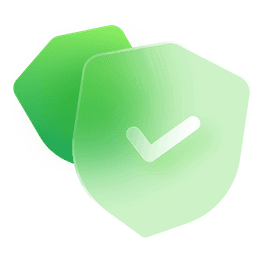How To Protect Your Website From Ransomware Attacks
Security for Everyone
If you're a website owner, you know that keeping your site safe from hackers is a top priority. But did you know that ransomware attacks are becoming an increasingly popular among cybercriminals?
Ransomware is a type of malware that encrypts or takes control of your computer files until you pay a ransom. It's been on the rise in recent years, and can be very costly to businesses and individuals. Here are some tips on how to protect your website from ransomware attacks.
What is ransomware attacks?
There are many types of ransomware, but the primary idea behind ransomware attacks is to encrypt your files so that they cannot be accessed until you pay a certain amount for decryption key. Keep in mind that a malicious hacker's decryption for the files would not be guaranteed upon the payment. This encryption is usually very strong and difficult to reverse if there is no error in the encryption method. While ransomware might seem simple at first, there are some specifically clever ransomware variants which have evolved over time. One such version goes as far as to block all internet traffic from entering your computer preventing you from contacting any cybersecurity experts for help.
You can read more about the Practices Cybercriminals Use in Ransomware Attacks from our blog post.
What are the affects of ransomware attacks?
The most detrimental affect on victims of ransomware attacks is losing access to their data. The files become unusable and unrecoverable due to encryption. Additionally, some ransomware attacks demand large sums of money (in the form of bitcoin), which can quickly add up. This makes ransomware attacks a serious issue, as they can have detrimental effects to businesses and personal lives.
Ransomware is a type of malware that blocks access to computers unless victims pay attackers by transferring them money through untraceable ways such as crypto. The ransomware industry is rapidly growing, as ransomware infections quadrupled in a year. Ransomware encrypts files so they are unusable, making ransomware an issue due to the loss of data it causes. Individuals and organizations should have cybersecurity measures in place so they do not fall victim to ransomware attacks. These measures include having a backup solution for all important data so it can be restored if ransomware encrypts information on computers or devices and using an automated vulnerability scanner to know your vulnerabilities and fix them before you fall victim of any attack. Additionally, only opening emails from trusted senders and scanning email attachments before opening them can help protect against ransomware attacks. You can increase awareness on cybersecurity by using Cybersecurity Awareness Training and Quizzes such as S4E:Education.
How do you protect your website?
Protecting your website from ransomware attacks is very similar to protecting it from any other attack. The first and most important thing in ransomware protection that cannot be stressed enough is having a strong and unique password for all your logins. A strong password has a minimum of 16 characters including numbers, symbols, and upper and lowercase letters. Secondly, make sure that you have an anti-virus software running on all devices with access to your website along with a firewall to monitor incoming traffic. In addition, utilize file backups so if ransomware does manage to get onto one device, the files will not be completely lost. We advise to keep your backups in a different server; hackers might encrypt the backups if you keep them in the same server. A ransomware protection company can also provide a more secure website by monitoring your website for any ransomware activity and quickly terminating the threat to protect your site from further damages. So the best ransomware protection is to simply prevent ransomware from infecting your website in the first place.
In conclusion, ransomware attacks are becoming increasingly common due to the advancement of ransomware technology. Ransomware victims lose access to their files due to encryption. To protect yourself and/or your business against ransomware attacks, you need cybersecurity measures in place. This requires multiple channels to protect, such as increasing cybersecurity awareness, using automated vulnerability scanners to be sure you don't have any vulnerabilities or a backdoor for cybercriminals, etc.
It is possible to protect yourself against cyberattacks as long as you know your vulnerabilities before hackers do and get help fixing them by using automated vulnerability scanners. Also, it is highly recommended to have a pentest performed on websites at least twice a year to detect all your vulnerabilities before cybercriminals.
If you think you need an extensive knowledge, you can always advise to our cybersecurity experts to request a pentest service or any other questions.

control security posture
